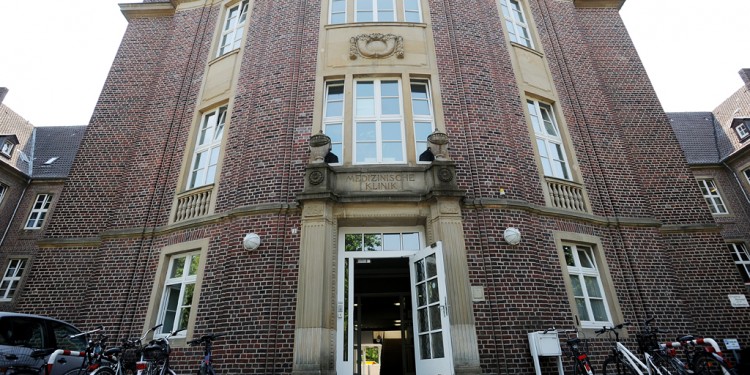
University closes non-approved facility for laboratory mice
The Faculty of Medicine at the University of Münster has, by order of the local Veterinary Office, closed with immediate effect a non-approved facility for laboratory mice at one of the Faculty’s institutes. Directly after an anonymous tip-off had been received on Tuesday, 20 June, those in charge at the Faculty inspected the room and informed the local Veterinary Office. The head of the Veterinary Office arrived on the scene on the same day to assess the situation and she spoke with many of the staff working there.
The local Veterinary Office confiscated the 77 mice and transferred responsibility for looking after the animals to the Central Animal Experiments Institute (ZTE) at the Faculty of Medicine. The head of the Faculty's Animal Protection Office and a scientific member of the Faculty’s Animal Protection Committee also took part in the inspection. The vet from the Münster authority gave orders for six animals to be put down due to the bad condition they were in. The other animals are in a good condition.
It is not yet known how many people knew of the non-approved facility and who had access to the room, which had evidently been used for this purpose for a longer period of time. The Dean of the Faculty, Prof. Mathias Herrmann, and the Rector of the University, Prof. Johannes Wessels, assured the Veterinary Office that every conceivable support would be provided during investigations. “We are appalled at this breach of trust and at this behaviour,” said Johannes Wessels, “because the University has committed itself to handling experiments on animals in a responsible manner. We will do everything we can to prevent anything like this happening again.” It was highly likely, he added, that individual members of staff would be facing legal consequences, but that first of all the investigations and interviews would have to be carried out.
